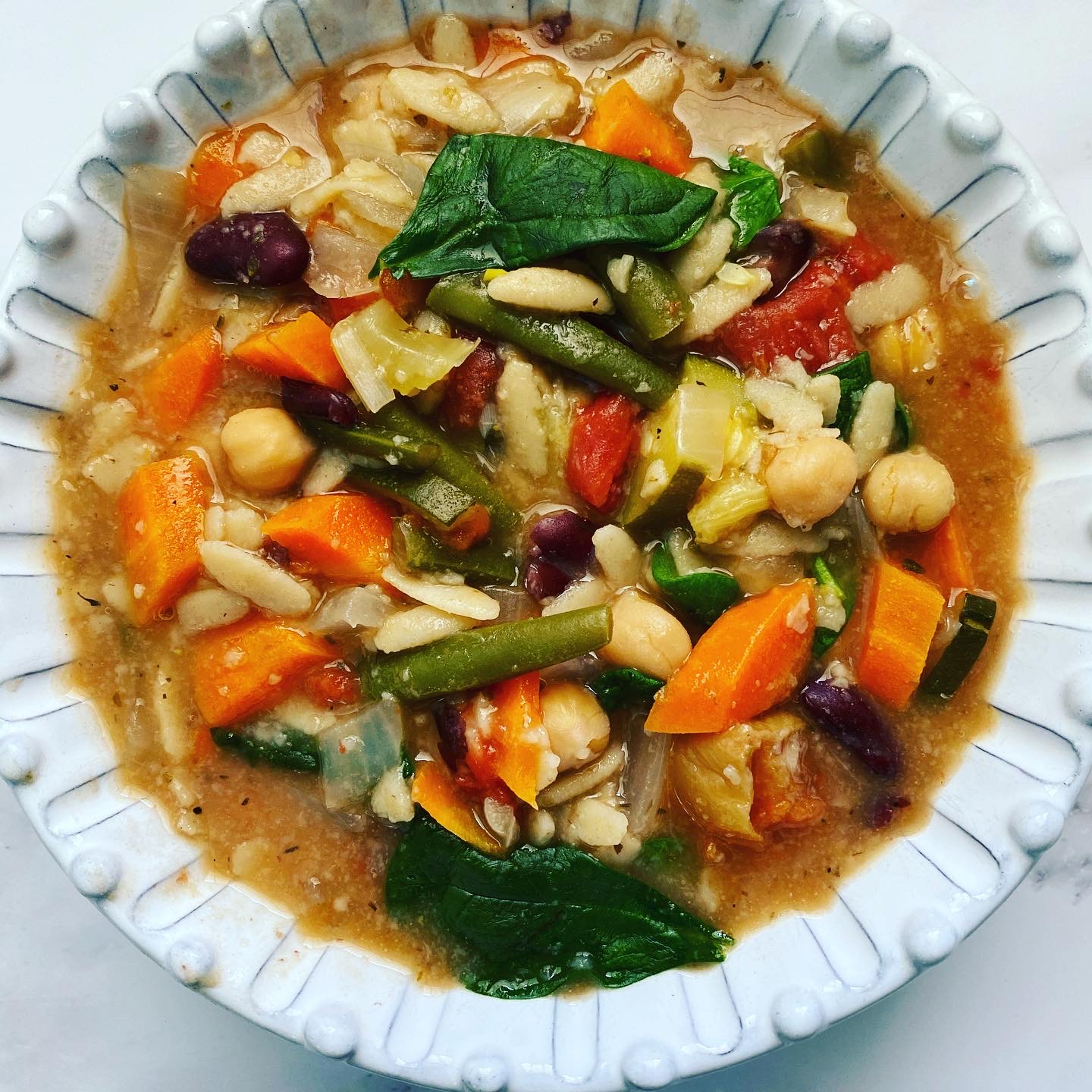Let’s Talk Fiber!
If you read my social media posts you know that I’m big on fiber. So much focus is placed on protein which is important for many processes in the body, but fiber, which is also important, is overlooked.
According to the National Institutes of Health (NIH) only 5% of Americans get enough fiber – 5%! That’s crazy and scary.
So, let’s dig into this a little bit. What is fiber? The definition of fiber from Harvard T.H. Chan School of Public Health is:
“Fiber is a type of carbohydrate that the body can’t digest. Though most carbs are broken down into sugar molecules, fiber can not be broken down into sugar molecules, and instead it passes through the body undigested. Fiber helps regulate the body’s use of sugars, helping to keep hunger and blood sugar in check.”
There are two types of fiber: soluble and insoluble. Soluble fiber dissolves in water and can help lower glucose and blood sugar levels. Insoluble fiber does not dissolve in water. It can help move food through the body encouraging regular bowel movements and helps to prevent constipation.
ALL FIBER COMES FROM PLANTS, ONLY PLANTS!
The best fiber sources are: whole grains – brown rice, quinoa, millet, farro and 100% whole wheat. Also, fruit, vegetables, beans and legumes and nuts and seeds.
There are many benefits of a high fiber diet:
Lower risk of heart disease, lower risk of Type 2 Diabetes, can lower risk of some cancers, can lower blood cholesterol, promotes weight loss and encourages regularity and bowel health.
The Mayo Clinic recommends women eat 21 – 25 grams of fiber/day and men 30 – 38 grams/day.
Please don’t be afraid of fiber because it’s a carb. Not all carbs are created equal. Staying away from processed carbs and sugar is always recommended. Add in whole food plant based carbs to get the health benefits of fiber.
Tips to adding fiber into your diet:
Start your day with oatmeal, berries and walnuts or whole grain toast with avocado, hummus and chopped kale.
Make a vegetable bean soup or chili.
Add 1/2 cup beans to your salad. 1/2 cup of most beans has 6-8 grams of fiber.
Have hummus and carrots, broccoli or cauliflower as a snack.
Have a handful of nuts or seeds as a snack.
Two more important tips:
Gradually add in fiber, work up to the recommended daily amount to avoid/prevent tummy issues.
Increase the amount of water you drink as you increase fiber.
Head on over to my Recipes page and check out my Soups and Main Course recipes, all of which are fiber rich.
Stay Nourished!
Alice

